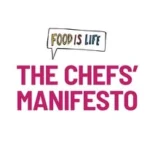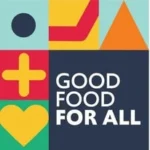SOFI 2021
FAO’s report of the State of Food Security and Nutrition in the World
Brief prepared by SDG2 Advocacy Hub
The State of Food Security and Nutrition in the World (SOFI) is an annual report developed by the UN Food and Agriculture Organisation (FAO), the International Fund for Agricultural Development (IFAD), UN Children’s Emergency Fund (UNICEF), the World Food Programme (WFP), and the World Health Organisation (WHO). The report compiles data on progress towards the goals of ending hunger, improving nutrition, and achieving food security around the world.
Click the photo for the full report
This year, the report offers the first analysis of data on the impacts of Covid-19. The results show a dramatic rise in the rates of food insecurity and malnutrition in all its forms. According to the SOFI, “Nearly 1 in 3 people in the world did not have access to adequate food – an increase of almost 320 million people in just one year and 118 million more people were facing hunger in 2020 than in 2019. Globally, the world is not on track to achieve targets for any of the nutrition indicators by 2030.” The impact of COVID-19 comes on top of the major drivers of rising food insecurity since 2014, including conflict, climate variability and extremes, economic downturns, and the unaffordability of diets. These drivers, underscored by poverty and inequality, create multiple and compounding negative effects on our food system. It is urgent that we use the opportunity presented by efforts to build back better from COVID-19 to take bold action and commit to resolving the vulnerabilities and inequalities in our food systems.
Through the implementation of cross-sectoral portfolios of policies, investments, and legislation, we can transform food systems on local, national, regional, and global levels to become more resilient, to put the world on track to end hunger and malnutrition, and to improve access to affordable healthy diets.
The report presents six pathways, which, when implemented in a participatory way and in consultation with actors across the food system, can “accelerate the transformation of food systems while ensuring possible tradeoffs are minimized.”
This year offers a unique opportunity for advancing food security and nutrition through transforming food systems with the upcoming UN Food Systems Summit, the Nutrition for Growth Summit and the COP26 on climate change. The outcomes of these events will certainly shape the actions of the second half of the UN Decade of Action on Nutrition and Sustainable Development Decade of Action.
More key findings are listed below as well as links to the full report, the official 2021 SOFI white-label media toolkit, and information on how you can stay informed on events and discussions around the report.
More Key Findings
> Close to 12 percent of the global population was severely food insecure in 2020, representing 928 million people – 148 million more than in 2019
> 22% of children under 5 years of age were affected by stunting (149.2 million), 6.7% were suffering from wasting (45.4 million), 5.7% were affected by overweight (38.9 million)
> Some progress towards increasing percentage of infants 0-5 months who are fed exclusively with breast milk – 44% in 2019 up from 37% in 2012
> Anaemia in women aged 15-49 years is now an SDG indicator (2.2.3)
> Prevalence of moderate to severe food insecurity is 10% higher among women than in men (up from 6% in 2019)
> Women’s empowerment often leads to improved nutrition because of positive effects on child and maternal health
> Significant and positive correlations between women’s empowerment with improved dietary diversity and improved child nutrition
> Millions around the world suffer from food insecurity and different forms of malnutrition because they cannot afford the cost of healthy diets



